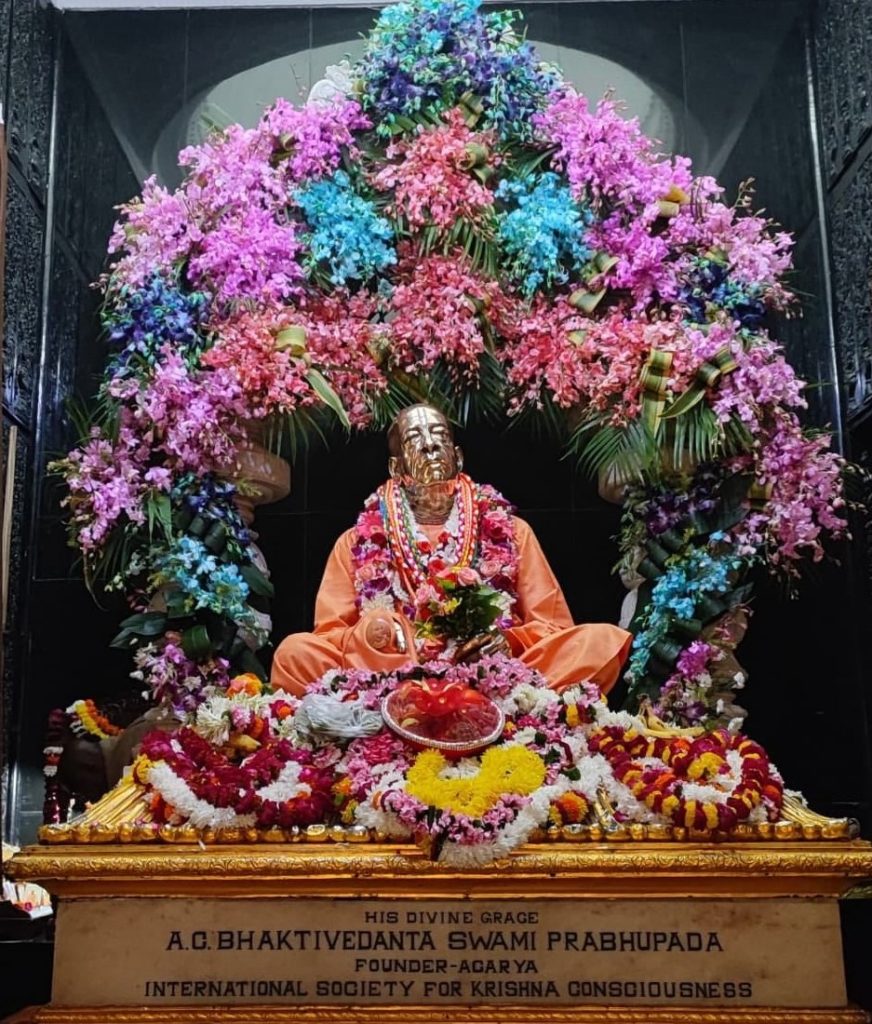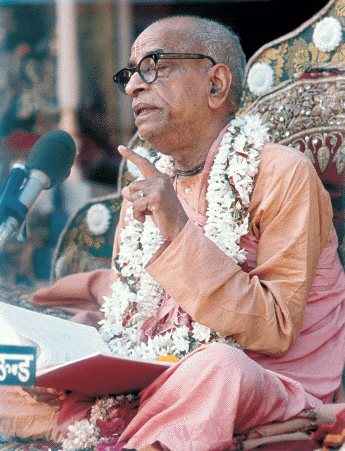
Hare Krishna and Pranam dear devotees,
Please hear this heart-touching incident which shows that there is no limit to the compassion of our dear Srila Prabhupada-
It was the beginning of 1977. Prabhupada was in the Bombay temple. He was very sick. He had stopped all food intake – he was taking 1/4 a cup of orange juice per day. His body had only bones left – there was no flesh. And yet, he was insisting that he wanted to go to London. The doctors had given up responsibility. But as always, he was adamant.
At this time, one Pancaratrika Pandit from Bangalore named Sampat Kumar Bhattacarya came to know about Srila Prabhupada’s situation. So, he took a flight from Bangalore to Bombay – which in those days was a huge thing for a Brahmin priest – and met Prabhupada, and asked for a private meeting. Generally, nobody was allowed a private meeting, but when he said that he specially came by flight from Bangalore to meet Srila Prabhupada, he was allowed a private meeting. So, everybody was asked to go out, and they talked.
The conversation was like this: Sampat Kumar: ‘Swamiji, I am feeling very pained that you are suffering like this.’
Prabhupada (laying down, in broken words): ‘The whole world is meant for suffering. Dukhalayam asavatam.’
Sampat Kumar: ‘But still Swamiji, there are so many people depending on you. So when you suffer, they suffer.
Prabhupada: ‘What can I do?’
Bhattacarya: ‘Swamiji, I want to tell you something. In Vrindavan temple, they are having your deity on the altar. And all kinds of people are coming and praying to it and offering flowers to it, and you are still living. According to Pancaratra, when the Acarya is living, if he puts his deity on the altar, then all the sufferings people are having come to his body through the deity. So you please tell your disciples to worship your deity only after you leave your body.’
He was speaking as if he was giving some information to Prabhupada, which Prabhupada did not note.
Prabhupada: ‘I know. I came here to take their suffering.’
Bhattacarya was shocked. He was not giving any new information. This was well known to Prabhupada, and he was determined to suffer for others.
Prabhupada: ‘Do you have anything else to say?’
Bhattacarya: ‘Swamiji, if that is your wish, what can I say? I am only a priest.’
Prabhupada: ‘Even when I leave, I will keep continuing taking their suffering, and make them free so they can keep chanting Hare Krishna.’
(Told by HG Atma Tattva Das in a Bhagavad Gita class on 9.34 in Los Angeles on the 20th of March 1993)
(Additional reference – By HG Rajendranandana Prabhu in the Memory Anecdotes of a Modern Day Saint by- Volume 4 by Siddhanta dasa)
Yes. Those who are spiritually advanced, their photograph and ordinary photograph is different. Just like here is statue of Kṛṣṇa. He’s not different from Kṛṣṇa. The original person Kṛṣṇa and this statue of Kṛṣṇa is the same. Similarly, a spiritually perfect person and his photograph is the same. Because it is in the absolute stage. In the absolute stage there is no difference. In the material stage there is difference. Is that clear?
(Lecture, 16th Sept. 1966, New York)
We can see that Srila Prabhupada has not disappeared. He is very much here- for us- in every temple, in every devotee’s home and in the heart of his dear followers. We simply need to put our prayer at his lotus feet- he is a unique combination of mercy and potency.
All glories to Srila Prabhupada.
your servant,
Giriraj dasa

